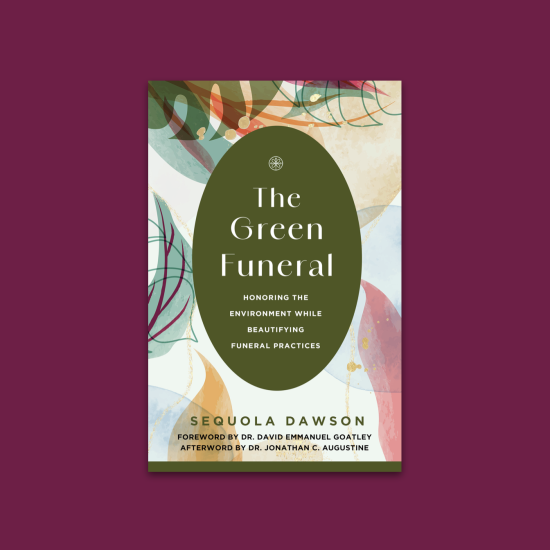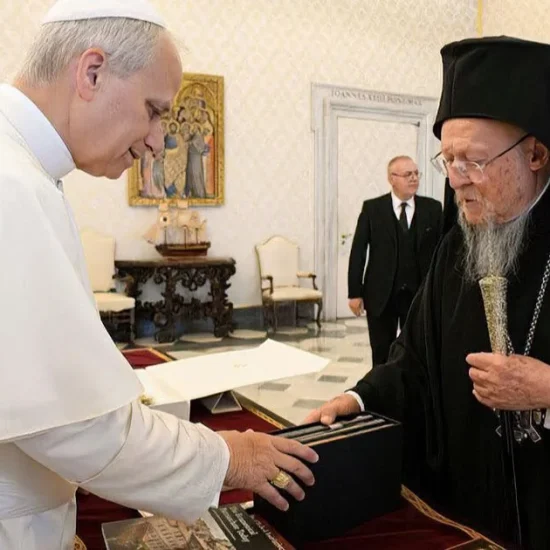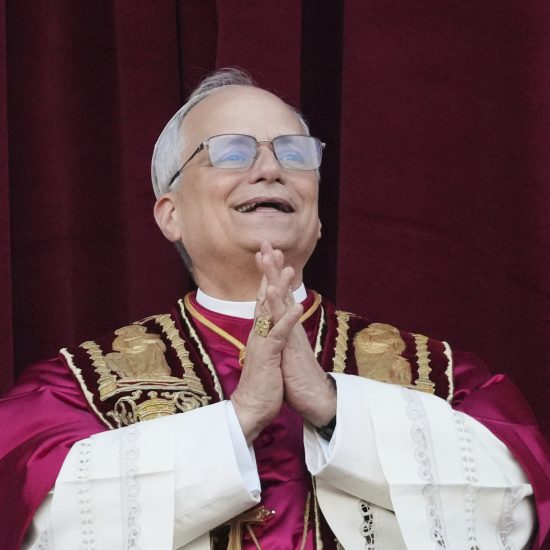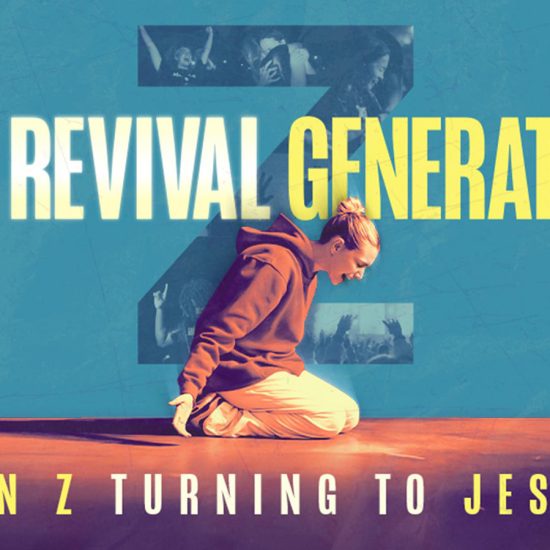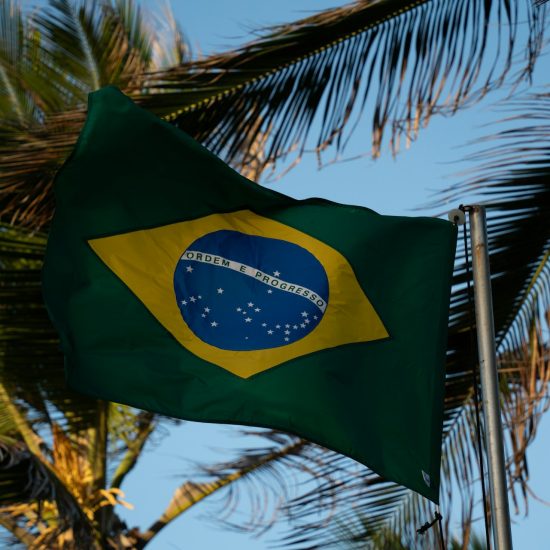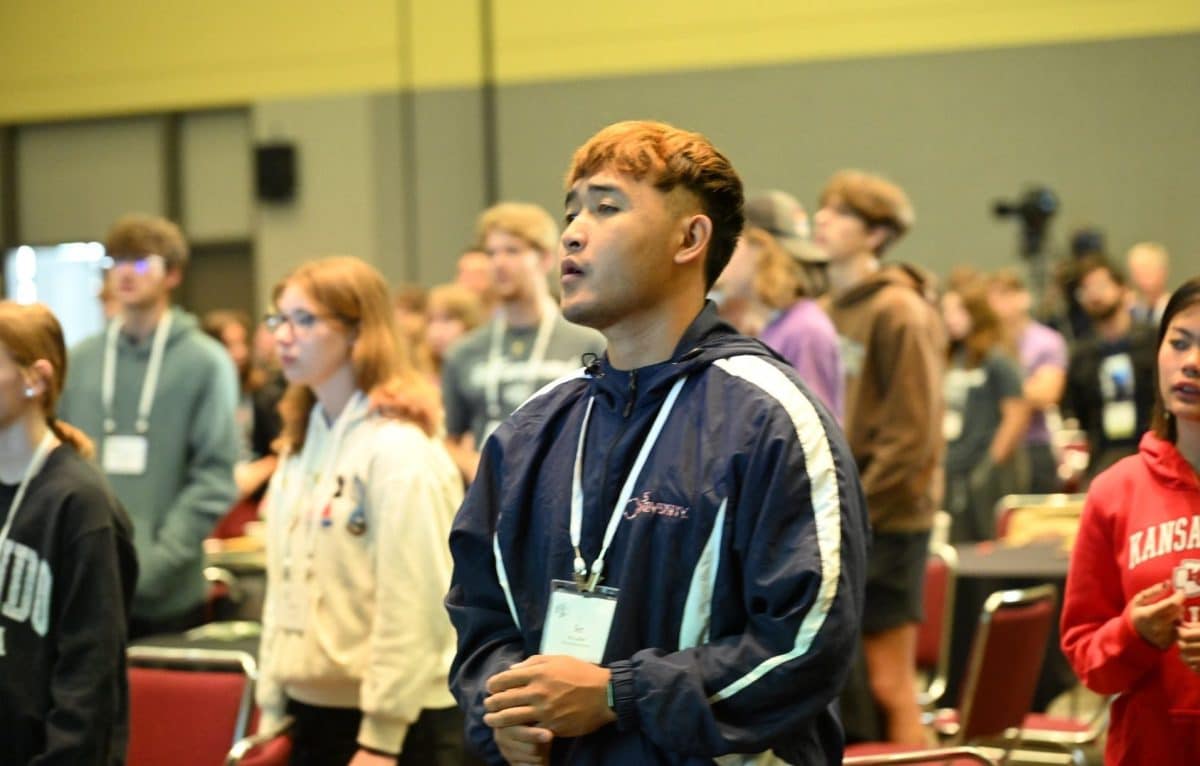
“If you find yourself feeling feelings of eco-anxiety where you freak out about buying something disposable or whatever, you’re going to need friends who can say to you: ‘This doesn’t belong to you. Shake it off. Don’t get stuck there. We were meant for better and bigger.’”
Chaplain and author Talitha Amadea Aho offered these words to a room full of Zoomers (Generation Z) last week at the Mennonite Church USA’s Youth & Young Adult Climate Summit. Falling immediately after the denomination’s four-day biennial convention in Kansas City, Missouri, this gathering brought together experts in climate change, spiritual activism, and social justice to explore ways that people aged 14-25 can put their faith to work to address our current environmental crisis.
When Aho, the summit’s keynote speaker, directly addressed the anxiety surrounding climate change, she made it clear that she wasn’t saying how we approach creation care in our daily lives doesn’t matter. Instead, she was pointing out how an individualist approach often paralyzes us.
“The whole concept of a carbon footprint — do you know who invented it? Corporations! … It was BP specifically, the oil and gas company,” she said to a room genuinely surprised by this answer.
“Because instead of taking corporate responsibility for cleaning up their mess, they decided to help us individually feel guilty about our fuel consumption. It changed my life when I learned this, and I’m mad as hell about it,” she added. “We could have had our collective attention on big things, strategic things: public transportation and carbon drawdown. But instead, we decided each person needs to focus individually on household influence. What an American solution. Personal responsibility, eh?”
Aho compared this to the notion that we could stop the drought in California by turning off the tap when we brush our teeth. But this distracts from the fact that water policy has made it so that the Colorado River no longer reaches the ocean.
“The system likes me to be worried and guilty about my actions. The system likes me to live a constrained and anxious life. To try to reduce my footprint, which is really to reduce my life, which makes me more anxious. As if by being more careful every day I could achieve personal innocence of the destruction of the earth. You know what I think about that? It’s spiritually anorexic — it’s poisonous, it’s controlling, it’s societal, and it is very complicated to heal from it,” she lamented.
“To be clear,” she continued, “I am still going to recycle and compost and turn off the tap when I brush my teeth. I’m going to keep saving my old T-shirts from church conventions and making them into quilts. It’s fine, it’s faithful. I’m excited to install a rainwater system in my garden. But I’m keeping this in perspective. These are all disciplines of faithfulness, living simply in stewardship of our resources. They are not strategies for changing the world.”
And our world needs changing. So this issue A Public Witness pulls up a chair at MennoCon23 in order to discover new ways for all of us to meaningfully engage in creation care, and to do so in full partnership with the youth and young adults in our own communities.
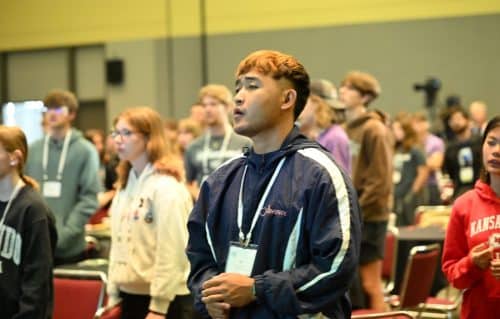
Attendees at the Mennonite Church USA’s Youth & Young Adult Climate Summit in Kansas City, Missouri, participate in opening worship on July 7, 2023. (Mennonite Church USA)
Join With the Groaning of All Creation
Talitha Amadea Aho models a healthy way to approach climate change within a cultural atmosphere that can easily lull us into inaction. And she does so by emphasizing that the only way to take this on is together.
“We are not alone. And even though God is dying every day, God is also rising from the dead. And somehow God is also being born. And we are laboring as we wait to see a new creation,” she concluded.
In the spirit of these remarks, the climate action summit then shifted to a panel discussion. The panelists came from a variety of backgrounds and represented different areas of expertise.
Sarah Nahar, a non-violent action trainer and interspiritual theologian (and the former executive director of Community Peacemaker Teams), said one of her primary passions is waste management. Not only is this not something people usually like to think about, she came upon it in a unique manner: when she ran away to join the circus. She said how that came to be was a story for another day, but she emphasized that living in tents, having a fossil fuel-free kitchen, and using composting toilets gifted her with a new perspective on our relationship with the earth.
“I came to realize that my life goal was not pooping in fresh water again and realizing that it is a collective solution,” she said. “I have to think about who’s downstream of me. Because when I flush and it goes ‘away’ there is no away land … How do we do unto those downstream as we would have those upstream do to us.”
Luke Beck Kreider, an assistant professor of religion and sustainability at Goshen College in Indiana, also touched on our complicated relationship with water when discussing how his current work researching how environmental issues intersect with dynamics like violence, racial injustice, and economic injustice, came out of working in New Orleans in the aftermath of Hurricane Katrina. He noted that one thing the rebuild organizers wanted volunteers to know is that this was more than a natural disaster.
“This was a social disaster, this was a political catastrophe,” he said. “So before they even let us go and work they wanted us to have anti-racism training. They wanted to tell us the history of New Orleans, they wanted to orient us to social-political factors that made this disaster what it was, to have the shape that it had in this place.”
“Inequality heightens risk — poverty increases vulnerability, racism increases vulnerability, colonialism increases vulnerability,” he added.
Sibonokuhle Ncube, the regional director for Africa and Europe at Mennonite Mission Network and former director of the Compassionate Development Services of the Brethren in Christ Church in Zimbabwe, described how it is possible that these harsh realities do not leave her with a hopeless outlook.
“I come from a fairly long lineage of women who refuse to be refused. One being my grandmother who was a master farmer in Zimbabwe. I wondered why she was waking me up at 4 in the morning and want me to sing Psalm 40,” she said before breaking out into song herself.
“I lean into trouble with lament and come out with hope,” Ncube added. “This is the pattern that my grandmother and the women before her taught her to contend with the drought. Taught her to contend with times when the soil or the land too is distressed and depressed and cannot give according to the seed that’s been planted in it. And so it is that leaning into life through spaces of lament has given me the mobility within complexity, the mobility within complicity, and mobility to be complementary to the ongoing work at community level.”
The presence of Lynn Hur, an expert in urban planning’s relationship with BIPOC and immigrant communities, on the panel was just as important as what she had to say. As a recent graduate of the University of California, Los Angeles, she is a member of Generation Z. This meant that even though she was participating in the panel remotely — her image projected onto a large screen with the “this is fine” meme as her virtual background — she was speaking to the audience as one of them.
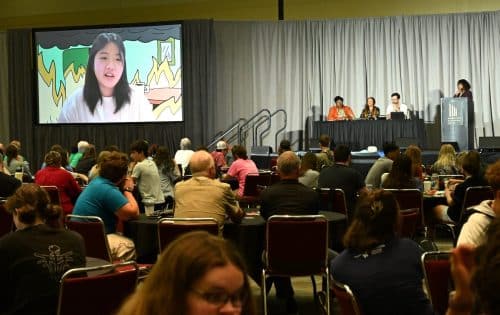
Lynn Hur speaks remotely to the Mennonite Church USA’s Youth & Young Adult Climate Summit in Kansas City, Missouri, on July 7, 2023. (Mennonite Church USA)
“When people struggle with apathy or with depression or anxiety about climate change, you don’t even consider the possibility that when you do face it you will experience something other than that anxiety,” she said. “What we call God or the Spirit moves you, and you’re suddenly given so much strength. And to me, of course this might not be applicable to all people, but I do think that many of the movements that we see move because of this type of strength. And we are given this type of strength to move.”
“So I guess the question is when you are given this opportunity to have this type of strength and have the Spirit within you, will you just stand there or are you going to move?” Hur concluded.
Get cutting-edge reporting and analysis in your inbox every week by subscribing today!
Collective Wisdom
At Word&Way, we have been covering various denominational gatherings this summer from the Southern Baptist Convention to regional conferences of the United Methodist Church, the American Baptist Mission Summit, the Cooperative Baptist Fellowship General Assembly, and the joint gathering of the Baptist World Alliance’s annual meeting and the European Baptist Federation’s “Sent” mission conference — with even more to come. And it is interesting to look at what issues and discussion formats take center stage at each of these.
After all, denominations themselves form because they ask specific theological questions and come up with answers that set them apart from other groups of Christians. We should certainly ensure that these distinctions do not keep us from finding common ground, but they are crucially important to understand in order to realize the unique (or not-so-unique) ways we currently interact with our communities and our world and identify exactly how we could be doing better.
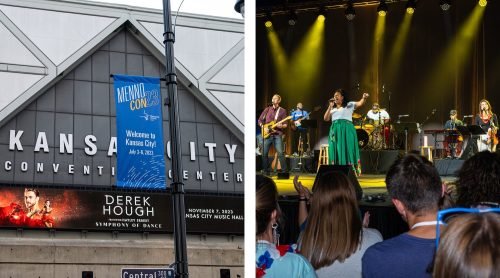
Left: Signage for MennoCon23 outside the Kansas City Convention Center. Right: Worship at MennoCon23 in Kansas City, Missouri, on July 4, 2023. (Mennonite Church USA)
This Mennonite summit’s panel discussion, and subsequent breakout sessions led by the panelists, showcase exactly why we cannot simply talk at youth and young adults — we must also actively work to include them in the conversation. This helps safeguard against the complacency of the status quo and pushes us to be radical in a manner that the situation demands.
“Youth movements have changed the world many times over,” Hur noted. “And Talitha was telling us about how climate anxiety … they want it to be an individual problem: ‘You need to do this to change the world.’ But really, we need to push them to do things. Same with us working in community when we connect to one another, there’s so much power that we have.”
Directly centering both young voices and creation care is one way to ensure that we don’t get stuck in our ways and keep our aim set on things that are better and bigger.
As a public witness,
Jeremy Fuzy
A Public Witness is a reader-supported publication of Word&Way. To receive new posts and support our journalism ministry, subscribe today.

